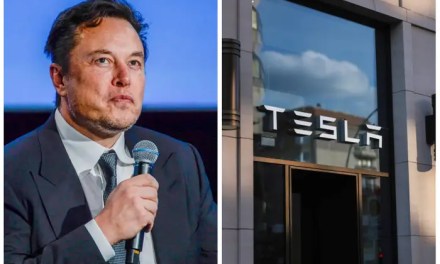Tesla has just announced a price drop for its electric vehicles, leaving many car enthusiasts buzzing with excitement. While Tesla claims that this move is part of their long-term strategy, experts believe it’s more about boosting demand for its vehicles. But what does this mean for the future of Tesla and the EV market? In this blog post, we’ll dive deep into the recent price drop and explore how it may impact consumer behavior towards Tesla’s cars. So buckle up and get ready to uncover the truth behind Tesla’s latest move!
Tesla’s price drop
Tesla is a brand that has quickly become synonymous with innovation and forward-thinking. So when the company announced their latest price drop, it came as no surprise that many people were wondering what this could mean for both the brand and the EV market in general.
The recent price reduction from Tesla has been significant, with some models experiencing drops of up to $5,000. This move follows similar price cuts made earlier in 2021 by other EV manufacturers such as GM and Ford. However, given Tesla’s position as a leader in the industry, this decision stands out even more.
While some may argue that these reductions are simply part of a long-term strategy by Tesla to remain competitive within an ever-growing electric vehicle market, others believe there may be something else at play here. Some experts suggest that these price cuts are aimed directly at boosting demand for Tesla’s cars amid increasing competition from other automakers.
Regardless of the reason behind their decision, one thing is clear: this move will undoubtedly have an impact on both consumers and competitors alike. Whether it leads to increased adoption of EVs or further shifts in pricing strategies remains to be seen – but one thing is certain: Tesla continues to make waves in the automotive world with its bold decisions and innovative approach.
Why Tesla dropped prices
Tesla recently announced a price drop for its Model 3, Model S and Model X vehicles by as much as $5,000. This decision came as a surprise to many since Tesla has been known for maintaining its prices despite production costs.
So why did Tesla decide to decrease the prices of its cars? According to Elon Musk, the CEO of Tesla, this move is part of their long-term strategy. By reducing the price now, they will be able to attract more customers and increase demand in the long run.
Moreover, this price reduction could also help offset some of the losses that were incurred during Q1 2019 when Tesla reported lower-than-expected sales figures. Lowering their prices could encourage consumers who were hesitant before due to high costs to finally make that purchase.
Another reason behind this decision might be competition from other automakers who are entering the electric vehicle market. With more affordable options available from companies like Hyundai and Kia, it’s imperative for Tesla to remain competitive with pricing if they want to maintain their lead in EVs.
While some may speculate that lowering prices means there’s something wrong with demand or production cost efficiencies at Tesla; it seems clear that these moves are all about boosting demand for their products over time – and making them accessible not just those already interested but also opening up new potential buyers in markets where higher-end EVs have been prohibitively expensive until now!
How this affects demand for Tesla’s cars
In summary, Tesla’s price drop may have been framed as a long-term strategy, but ultimately it was about driving demand for their cars. By reducing prices and making their vehicles more accessible to a wider range of consumers, Tesla is positioning itself for continued growth and success in the highly competitive automotive industry.
As electric vehicles continue to gain momentum and become more mainstream, Tesla’s commitment to affordability will undoubtedly help them maintain their position as a leader in this space. It will be interesting to see how other automakers respond to these developments and whether they are able to keep up with Tesla’s innovative approach.
It seems clear that the future of transportation is headed towards electrification, and with its forward-thinking approach and commitment to accessibility, Tesla appears poised for continued success in the years ahead.






